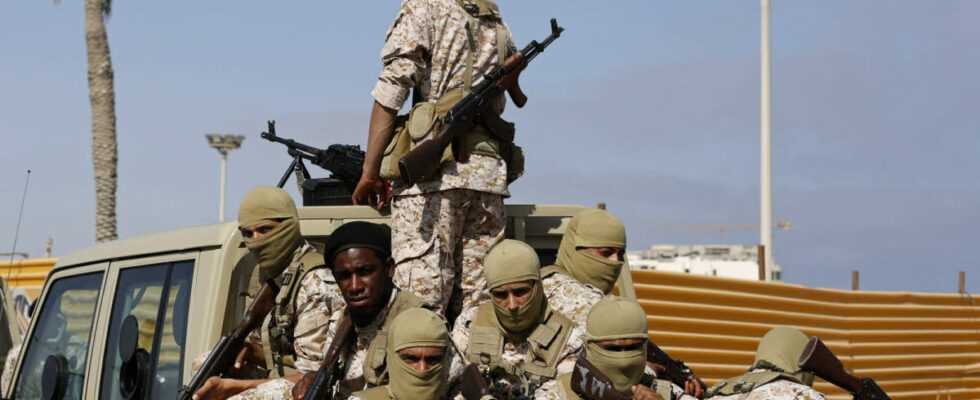The head of the Libyan government supported by the eastern camp of Marshal Khalifa Haftar withdrew from the capital Tripoli on Tuesday after trying to dislodge the executive in place, at the cost of several hours of fighting between rival armed groups.
Unprecedented fighting for almost two years
These clashes, on an unprecedented scale in Tripoli for nearly two years and the failure in June 2020 of Marshal Haftar’s attempt to seize it by force, are symptomatic of the chaos to which Libya has been plagued since the fall of Muammar Gaddafi’s regime in 2011.
The clashes between rival militias began on the night of Monday to Tuesday after the arrival in Tripoli of the Prime Minister appointed by the Parliament sitting in the East, Fathi Bachagha, accompanied by several ministers from his team. In the middle of the morning on Tuesday, after several hours of fighting, the press service of Mr. Bachagha indicated in a press release that the latter and his ministers had “left Tripoli to preserve the security (…) of the citizens”.
Mr. Bachagha, invested by Parliament in March, intended by this unexpected coup to take office in Tripoli despite the refusal of the current executive, led by Abdelhamid Dbeibah, to cede power before the holding of elections. The ballot originally scheduled for December has been postponed indefinitely.
“Refrain from any provocative action”
In the Tripoli region, both sides have the support of armed groups that are still very influential in the west of the country. According to Libyan media, the departure of Mr. Bachagha from the capital was decided during a mediation led by an army brigade loyal to the government of Tripoli to put an end to the fighting. The UN Secretary General’s Special Adviser for Libya, Stephanie Williams, called on Twitter for “restraint”, insisting “on the absolute necessity to refrain from any provocative action”.
“The United States is deeply concerned by reports of armed clashes in Tripoli. We urge all armed groups to refrain from violence and political leaders to recognize that seizing or retaining power through violence will only harm the Libyan people,” the US Embassy said. in Tripoli. The head of European diplomacy Josep Borrell told him of a situation “that has become very serious in recent hours”. “Sooner or later, when there are two governments, they clash,” he said in Brussels.
The Tripoli government’s Defense Ministry said in a statement quoted by the media after the fighting that it would retaliate “with an iron fist” to anyone who tries to “undermine the security and safety citizens” and that his forces will “hunt down” all those involved in this “cowardly act”.
After the guns fell silent, Mr. Dbeibah took a tour of the capital, according to images broadcast by televisions showing him near charred cars and damaged buildings.
Since 2011, Libya, a vast country of seven million people, has been plagued by divisions between competing institutions in East and West and by insecurity. Oil production, the country’s main source of income, has been hostage to political divisions, with a wave of forced closures of oil sites in recent weeks.
Considered close to the eastern camp, the groups behind the blockades demanded the transfer of power to Mr. Bachagha as well as a better distribution of oil revenues. Between 2014 and 2021, the country had already found itself with two rival governments. But it is no longer an East-West conflict, but an arrangement between key players in the two regions.
As Mr. Bachagha himself is a heavyweight in western Libya, he has forged alliances with both Field Marshal Khalifa Haftar and the eastern-based Speaker of Parliament, Aguila Saleh, on behalf of the national reconciliation.
